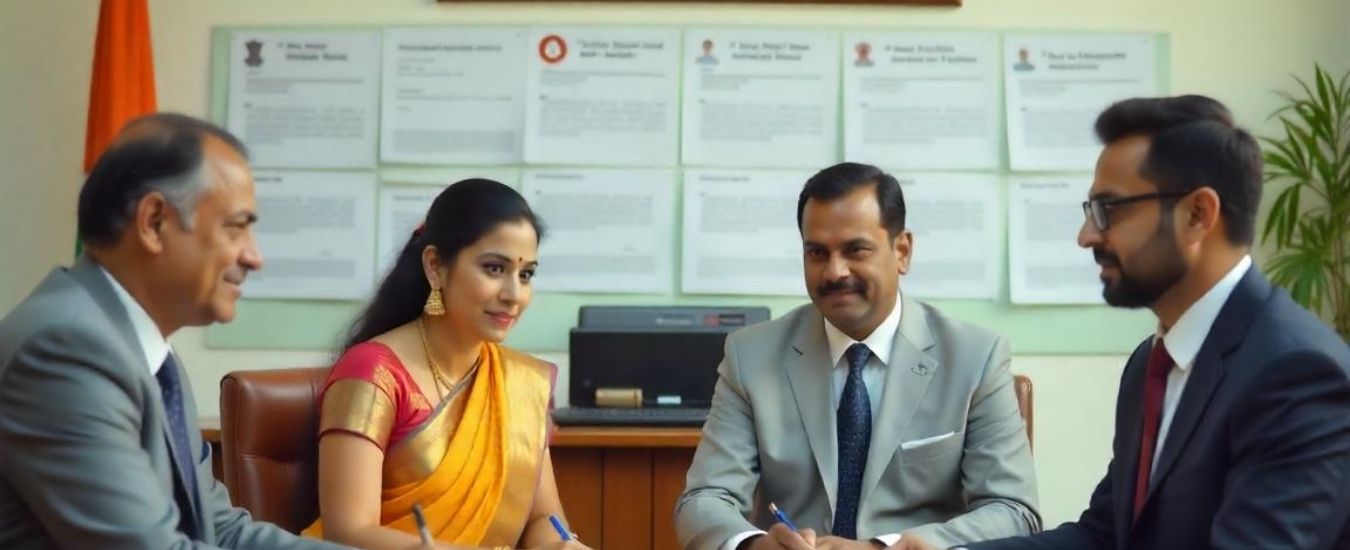Planning to get married minus the rituals, big wedding costs, or family drama? Welcome to civil marriage, popularly known as court marriage—a legally binding and transparent procedure governed by Indian law. Whether it’s a love marriage, interfaith union, or inter-caste wedding, court marriage provides a legalized, efficient, and secular path to matrimony.
Legal Framework for Court Marriage in India
Court marriages are formalized under the Special Marriage Act of 1954, providing a secular legal structure irrespective of religion or caste. The Marriage Registrar’s Office is the official authority overseeing this civil procedure.
Who is Eligible?
- The groom must be 21 years or older
- The bride must be 18 years or older
- Both should be mentally fit, unmarried, divorced, or widowed
- Must reside for at least 30 days in the jurisdiction where they apply
Step-by-Step Process of Court Marriage
Notice of Intended Marriage is submitted to the Marriage Officer’s Office
Notice is recorded in the Marriage Notice Book and displayed for 30 days
Any legal objections are addressed during this time
Post-approval, both parties and three witnesses appear for solemnization
A Certified Copy of the Marriage Certificate is issued after registration
Documents Required
Online Court Marriage Registration
Yes, many states allow online application via the Marriage Registration Portal:
- Fill out the form online and upload scanned documents
- Aadhaar authentication may be required
- Schedule verification appointment
- Appear before the officer for final solemnization
Fees
- Government Fee: 500–1,000 (varies by state)
- Lawyer Fees: 3,000–15,000 depending on complexity and objections
- Cities like Delhi or Mumbai may charge extra for administrative work
Role of a Lawyer
- Helps with document verification and notarization
- Guides you through any objection hearing
- Offers legal support during inter-caste or interfaith cases
Benefits of Court Marriage
- Legal recognition in India and abroad
- Ideal for interfaith or inter-caste couples
- Simplified the process; no religious conversion was needed
- Less expensive than traditional weddings
Challenges Faced
- Family opposition, especially in inter-religious unions
- Bureaucratic delays or inefficiencies
- In rare cases, couples may require police protection
Court Marriage vs Traditional Marriage
| Feature | Court Marriage | Traditional Marriage |
|---|---|---|
| Legal Validity | Directly recognized by law | Requires later registration |
| Cost | Usually < 10,000 | 5–20 Lakhs+ |
| Social Acceptance | May face family opposition | Generally accepted |
FAQs
Can foreign nationals marry via court marriage in India?
Yes, provided they meet residency and documentation requirements.
How many witnesses are required?
Three, each with a valid ID and address proof.
Can the couple marry without parental consent?
Yes, if both are adults with free consent and mentally fit.
How to get a certified copy of the marriage certificate?
Apply at the Registrar’s Office or via RTI if required later.
